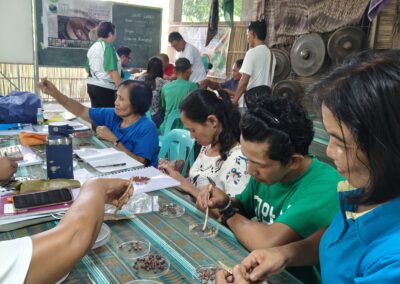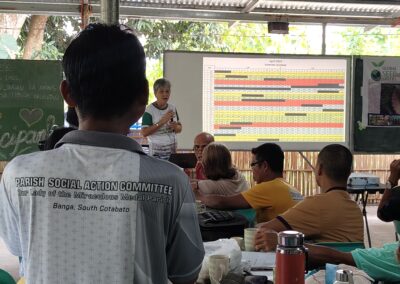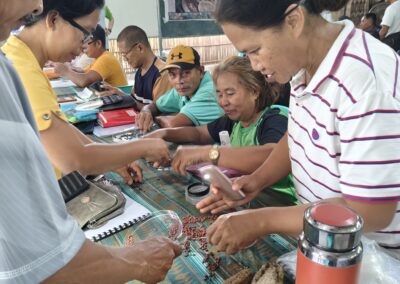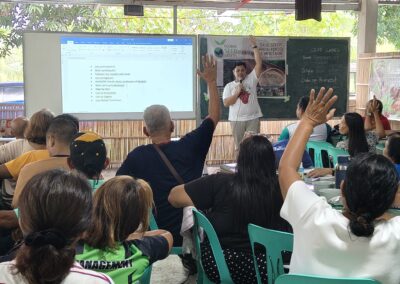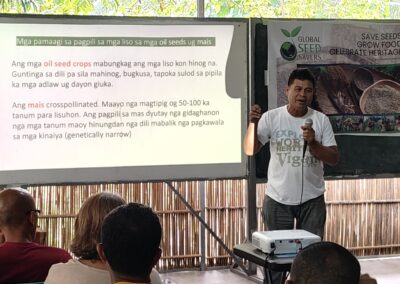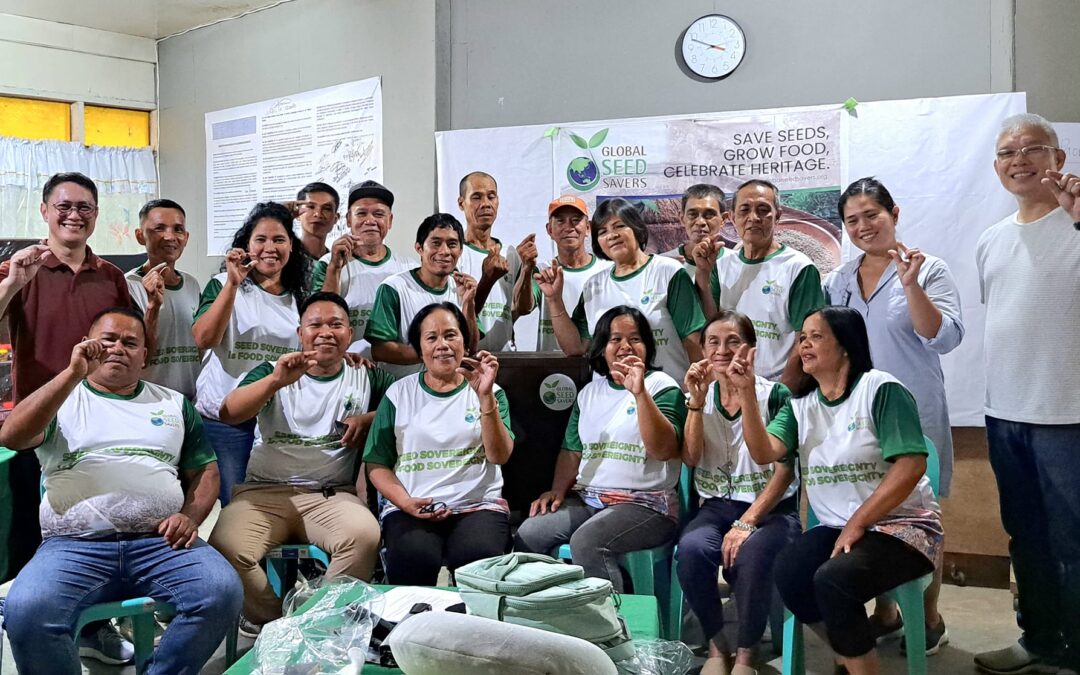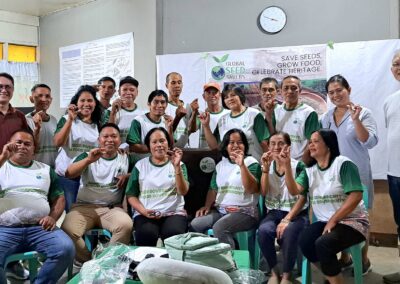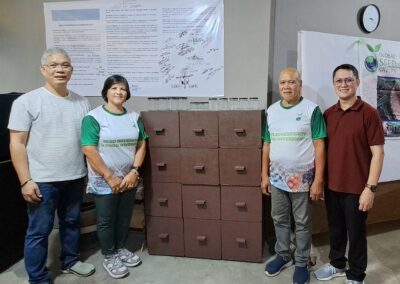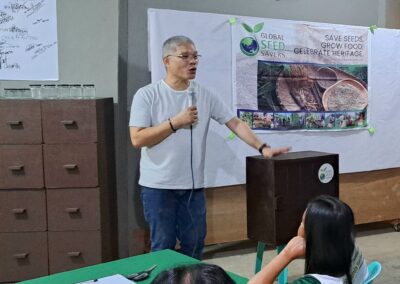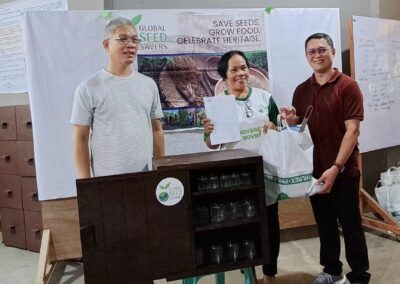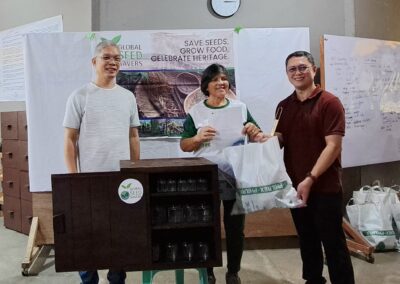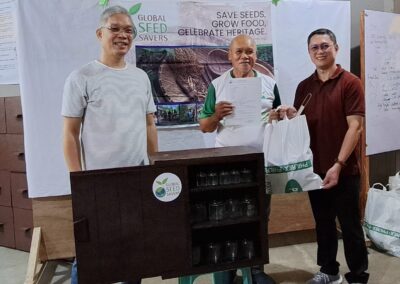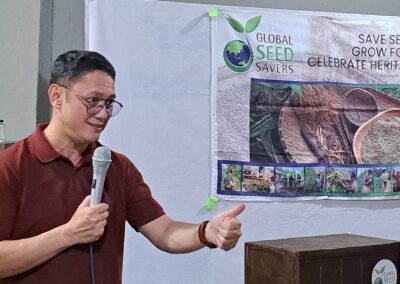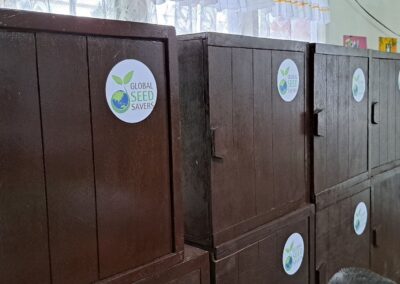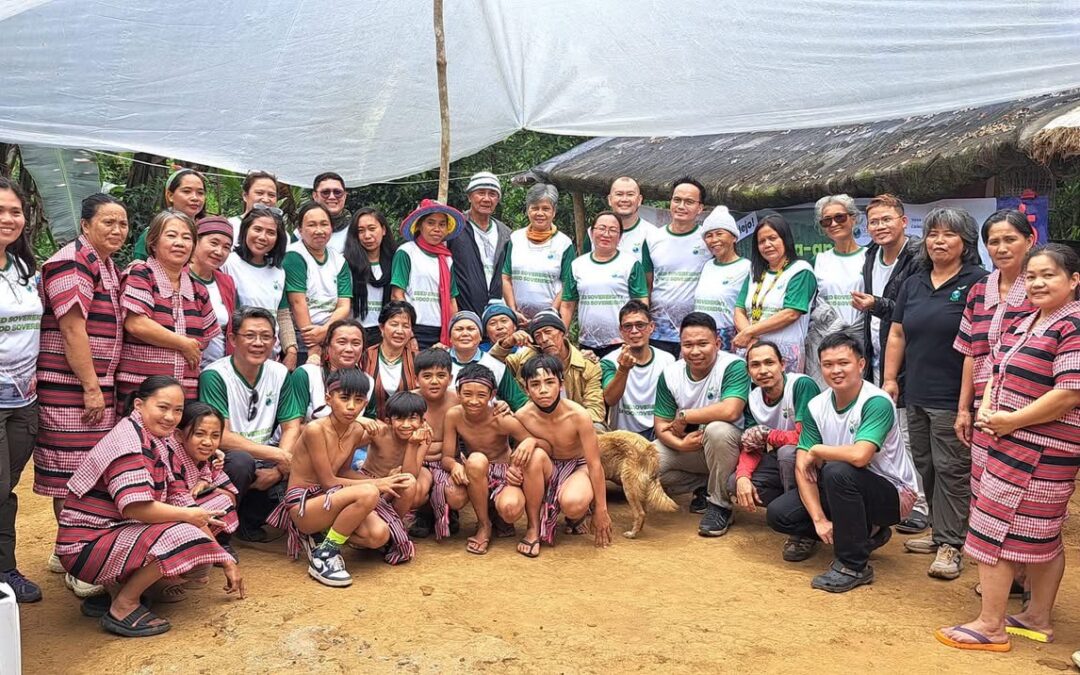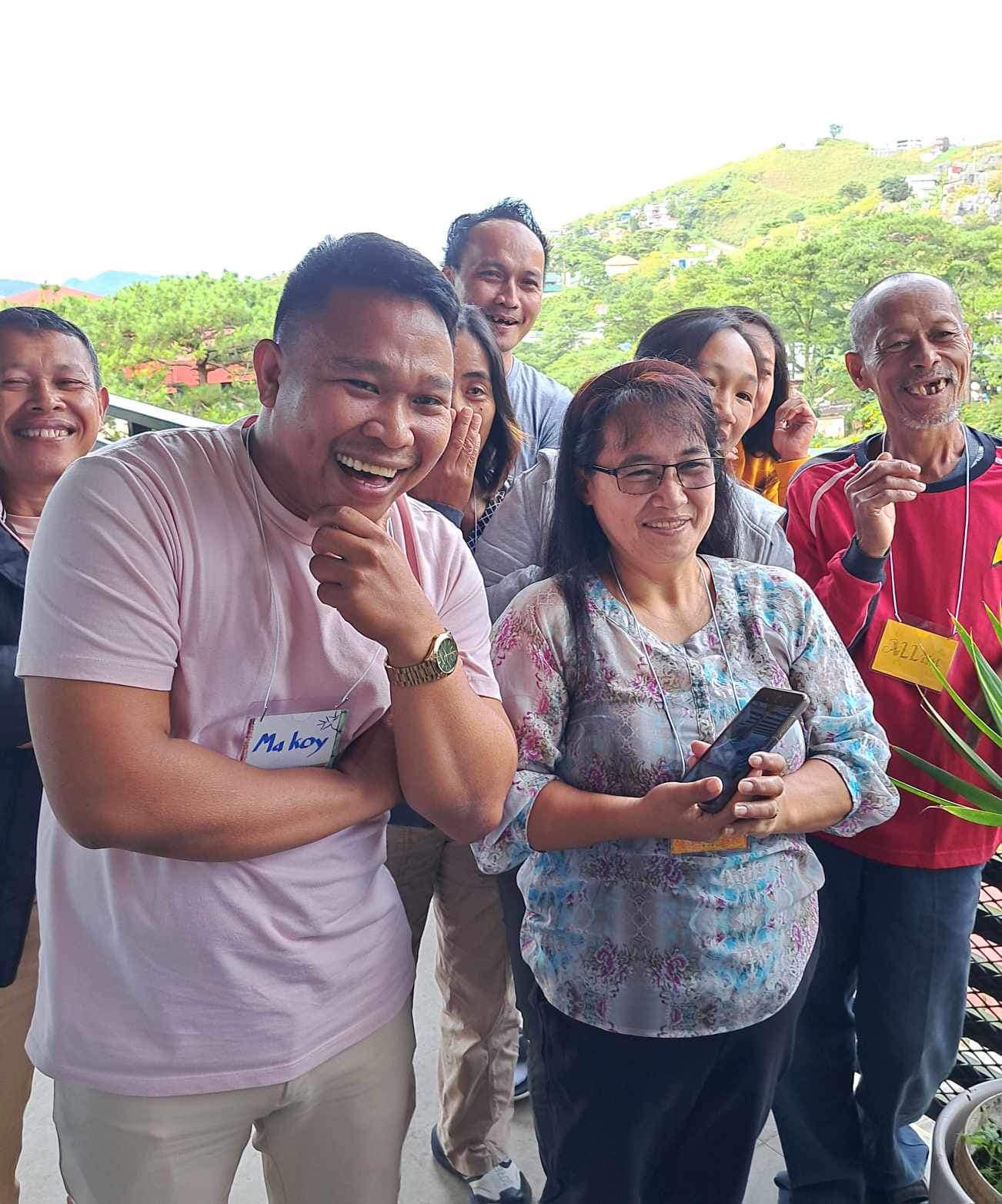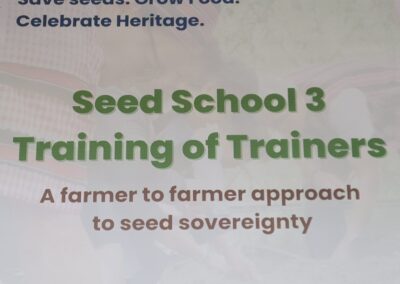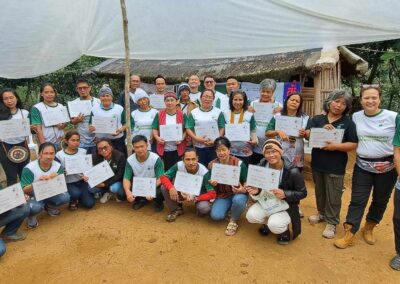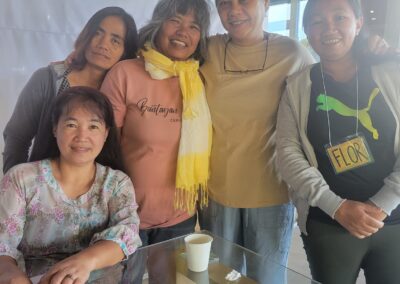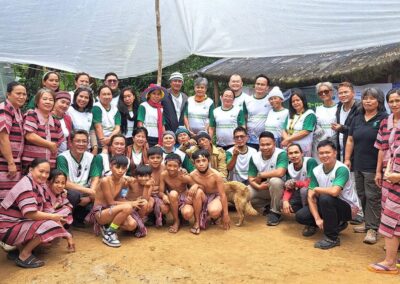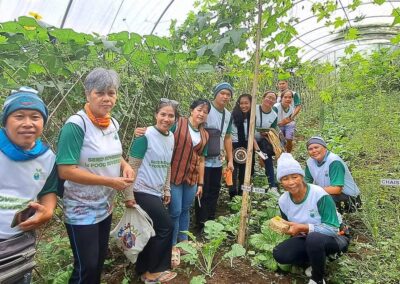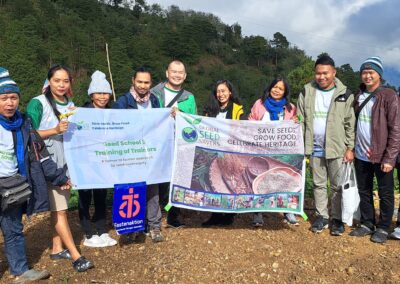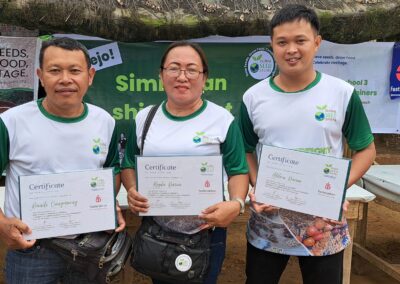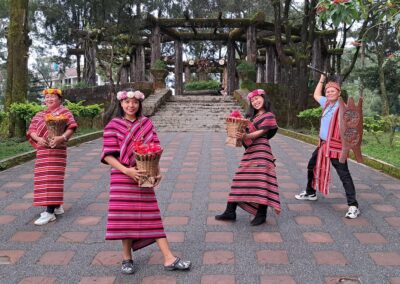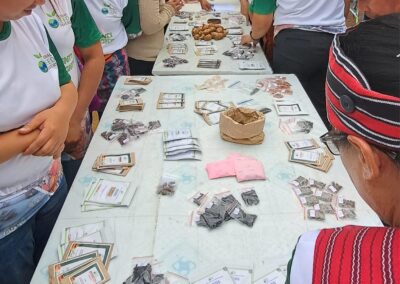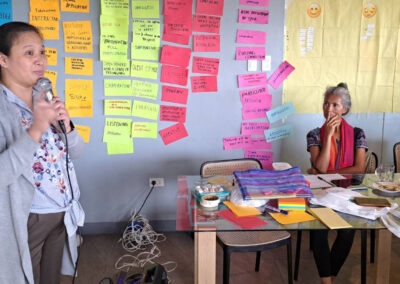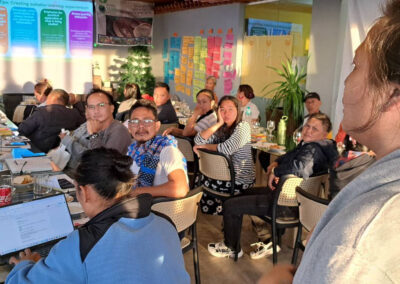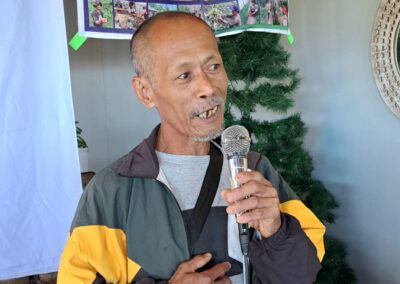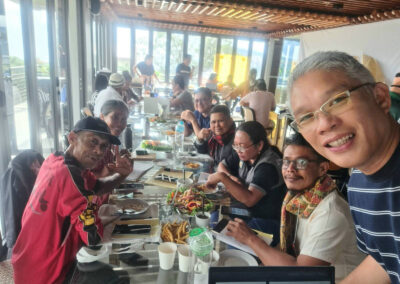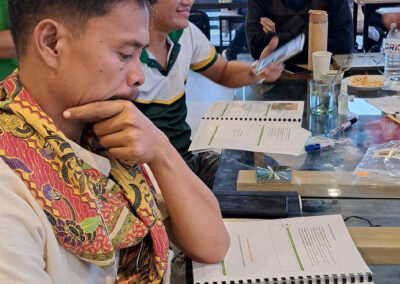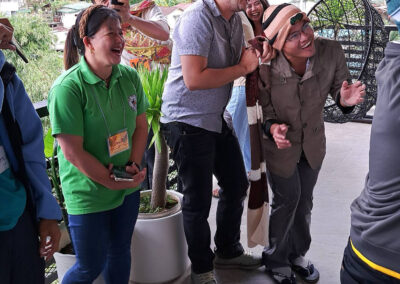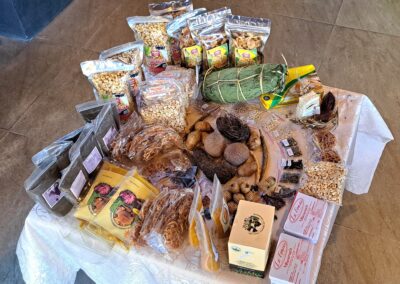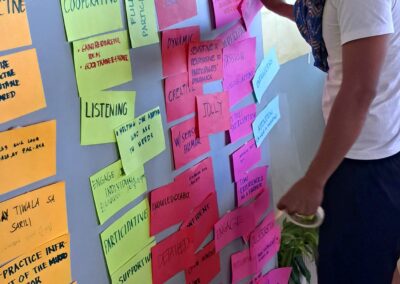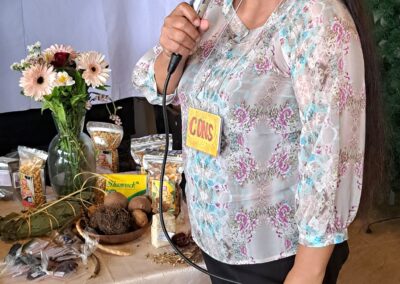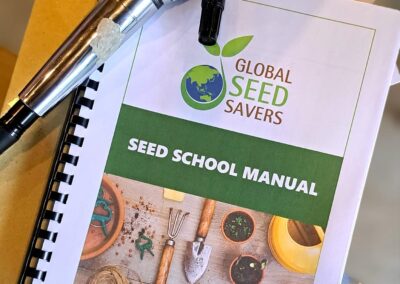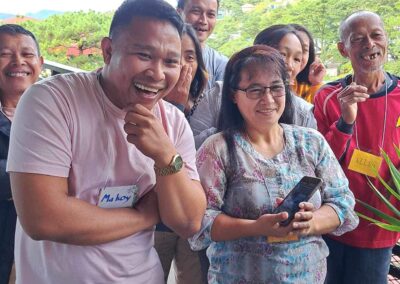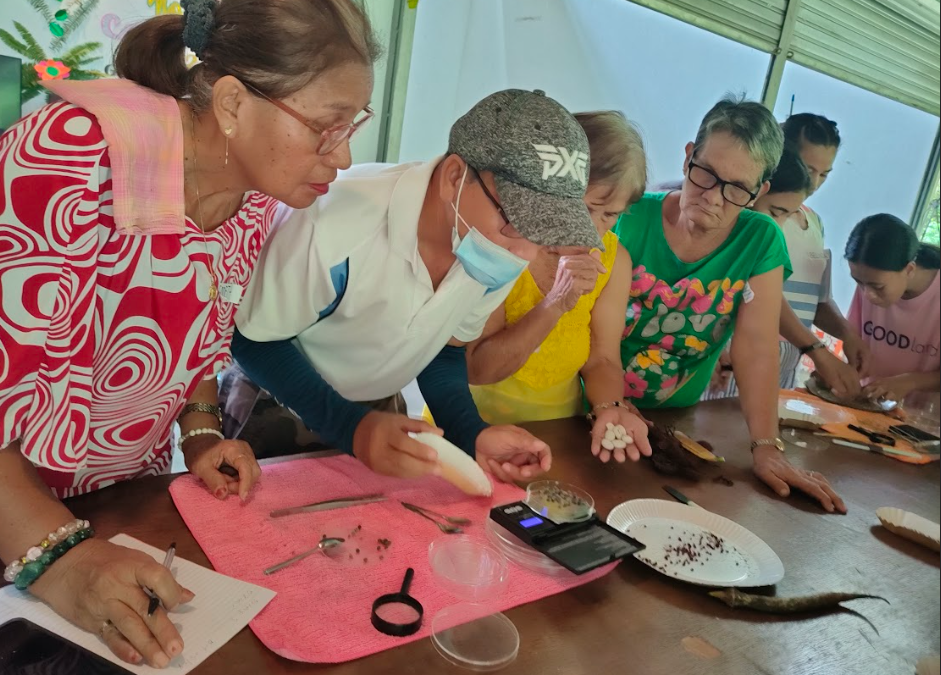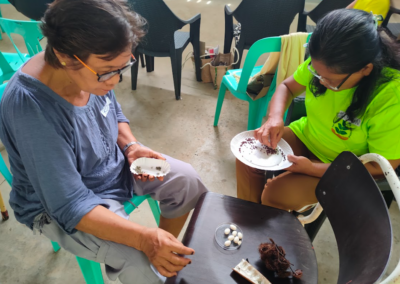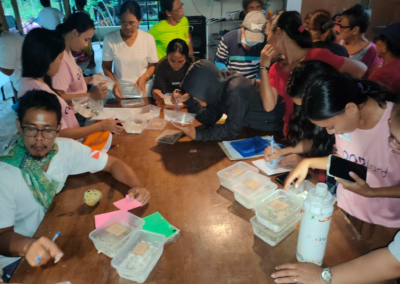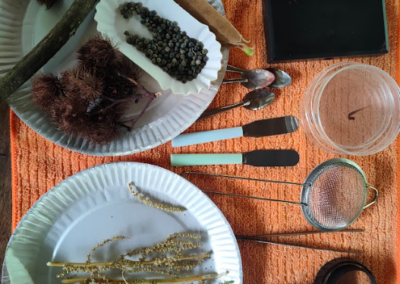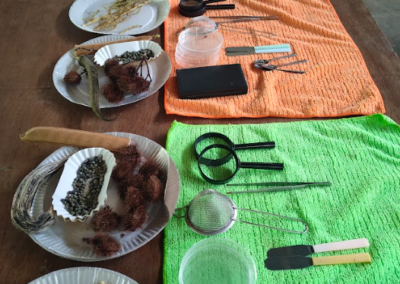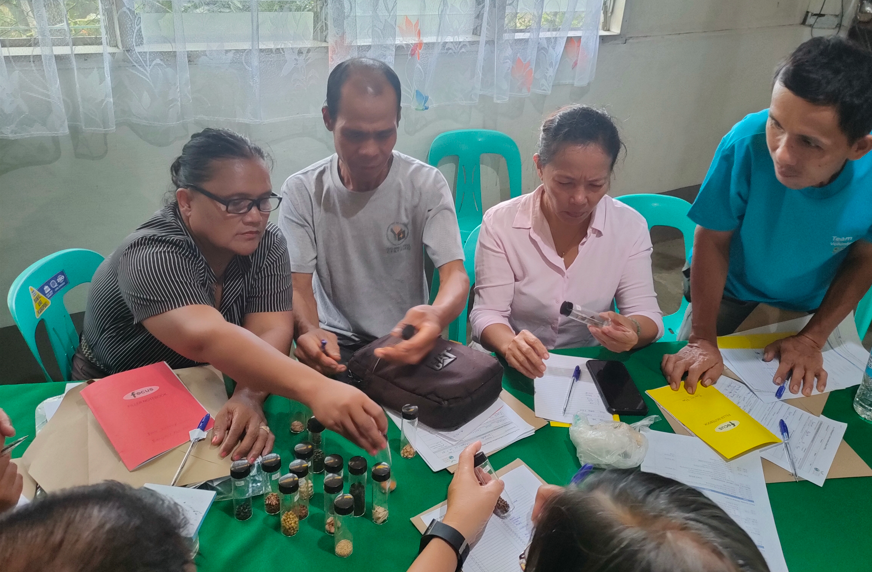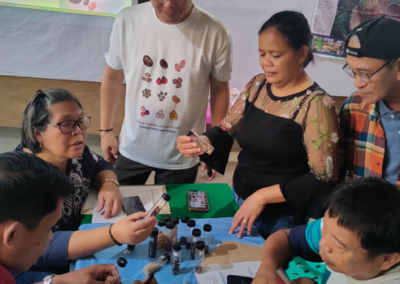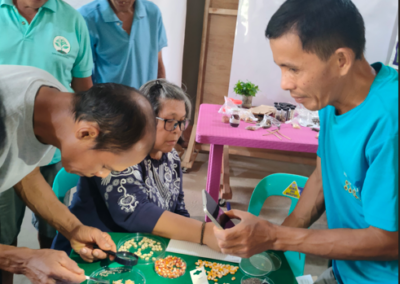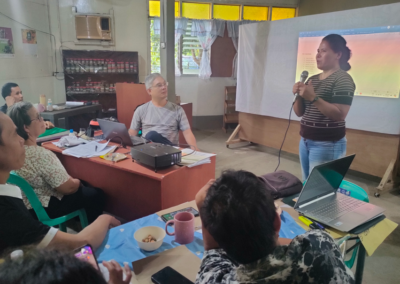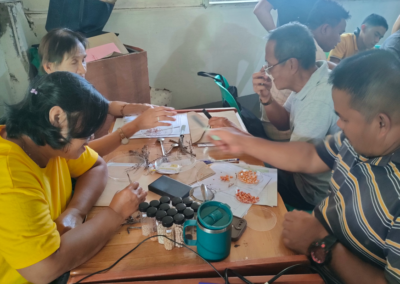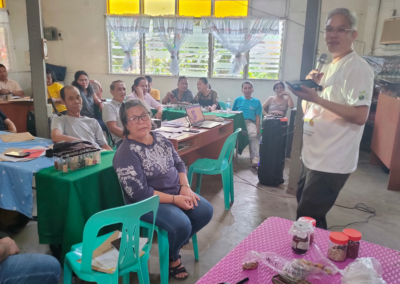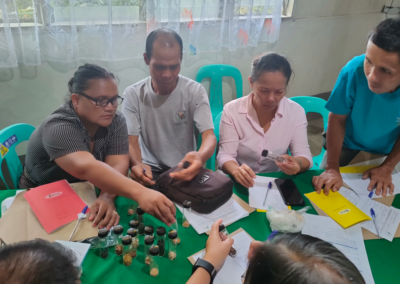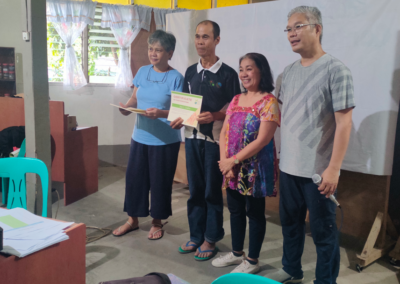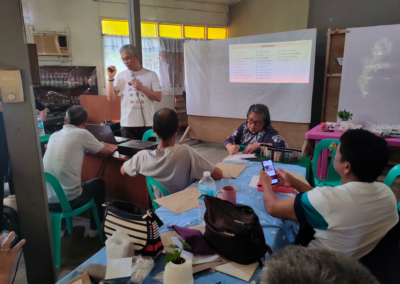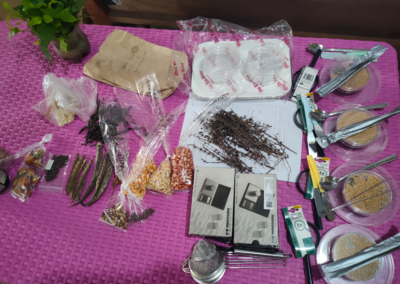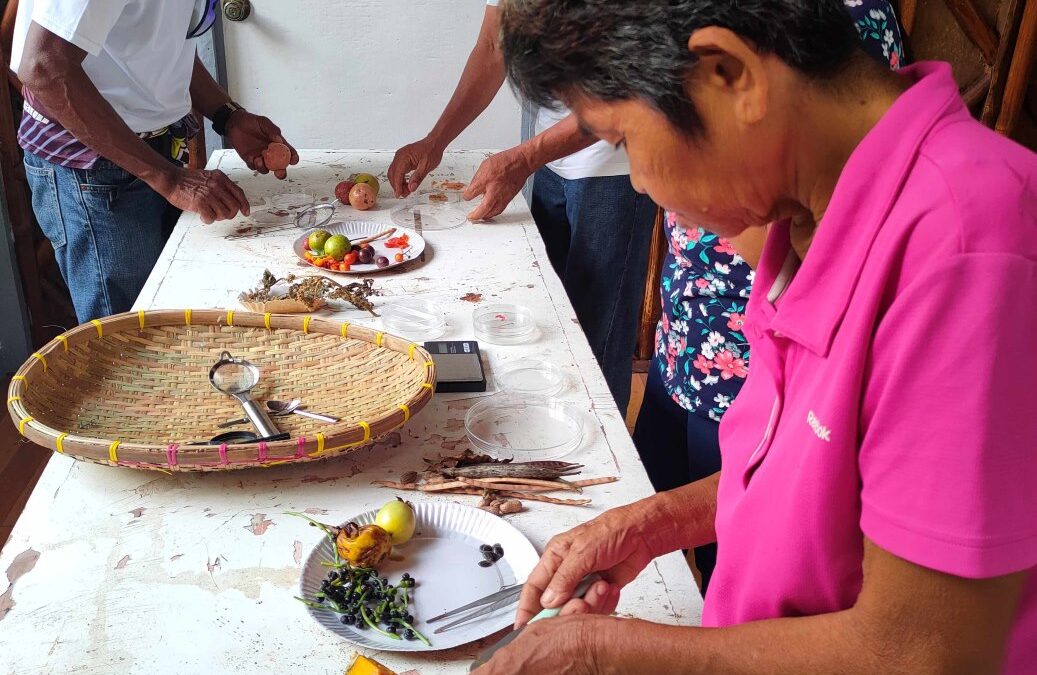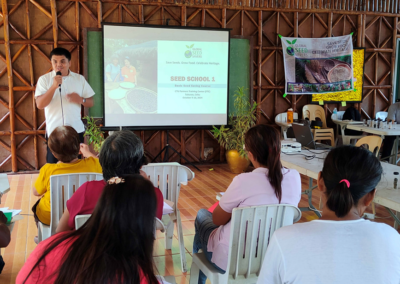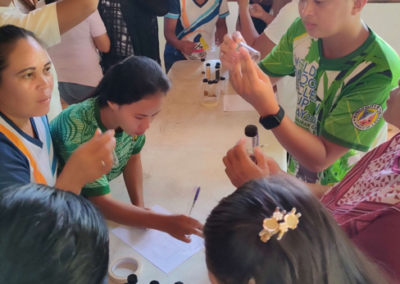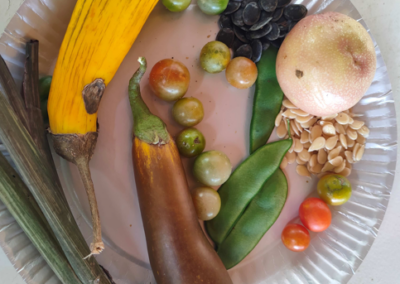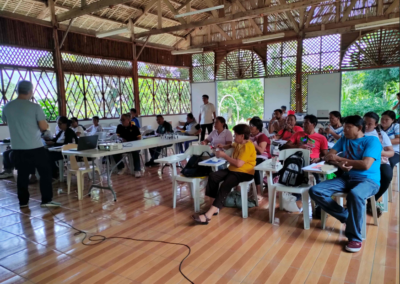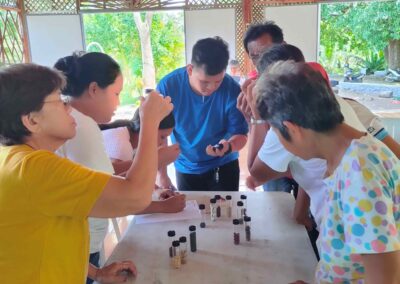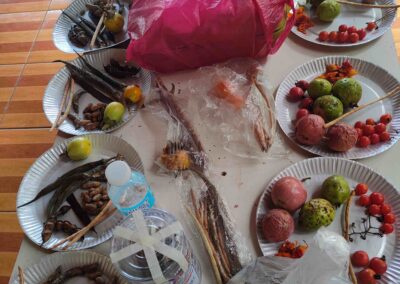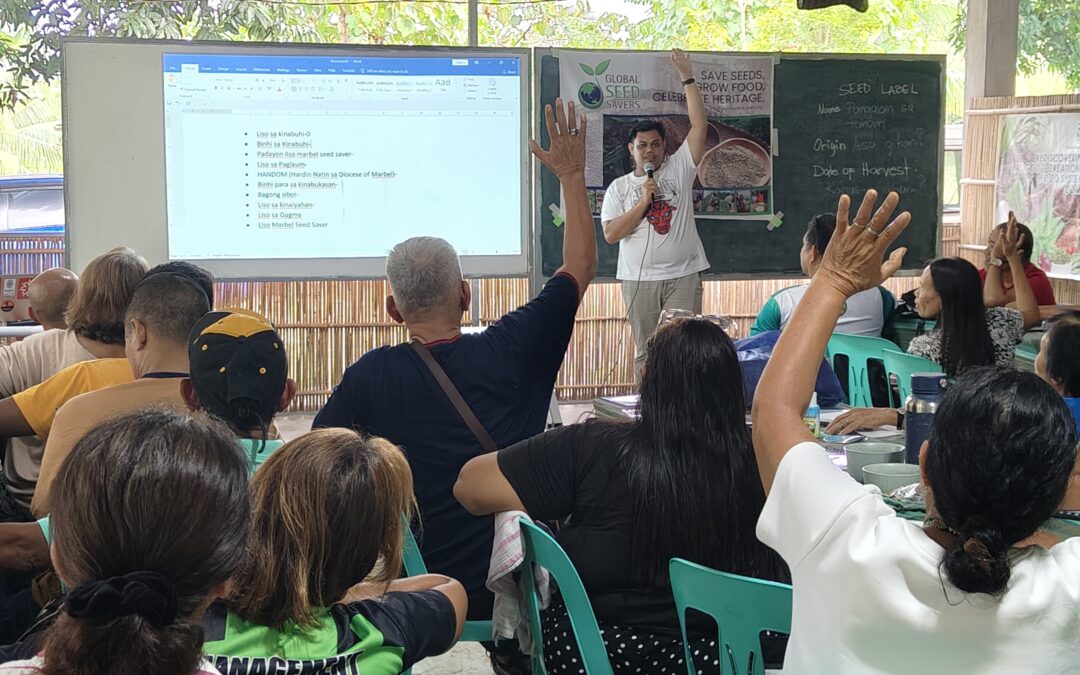
Reclaiming Traditions: Seed School 2 in South Cotabato
At St. Francis of Assisi Learning Farm and Food Sanctuary in Koronadal City, farmers, advocates, and community members gathered for Seed School 2, a powerful continuation of our journey toward seed sovereignty. In partnership with SAC Marbel, this training deepened participants’ knowledge of Global Seed Savers’ seed-saving standards, ensuring that traditional and organic farming practices remain at the heart of our food systems. The session also served as a stepping stone, identifying qualified participants for Seed School 3 and finalizing the recipient list for seed library boxes—an essential resource for keeping native seeds in circulation.
A striking moment came when a participant, who had been leasing his land to commercial seed industries, expressed his guilt after attending the session. Initially, he joined just to observe, but the discussions around food rediscovery and organic seed saving were a turning point for him. As he reflected on Fr. Jerome’s food rediscovery program and GSSP’s advocacy, he saw how everything starts with a seed—and how reclaiming traditional seed-saving practices is key to building a truly healthy and sovereign food system. His story is a testament to the power of education and community-driven movements in shifting mindsets and reclaiming food autonomy.
This gathering also shed light on the widespread shift toward commercial farming in Mindanao, even among the B’laan tribe, whose traditional farming knowledge has been overshadowed by the promise of higher yields from hybrid seeds. Yet, as many farmers are beginning to realize, the pursuit of “instant” profits has come at a cost—damaging Indigenous food systems, depleting biodiversity, and eroding community ties. Seed School 2 was a reminder that our work is more urgent than ever. By equipping farmers with the skills and knowledge to protect their seeds, land, and traditions, we are planting the seeds of resilience, sustainability, and food sovereignty for generations to come.
